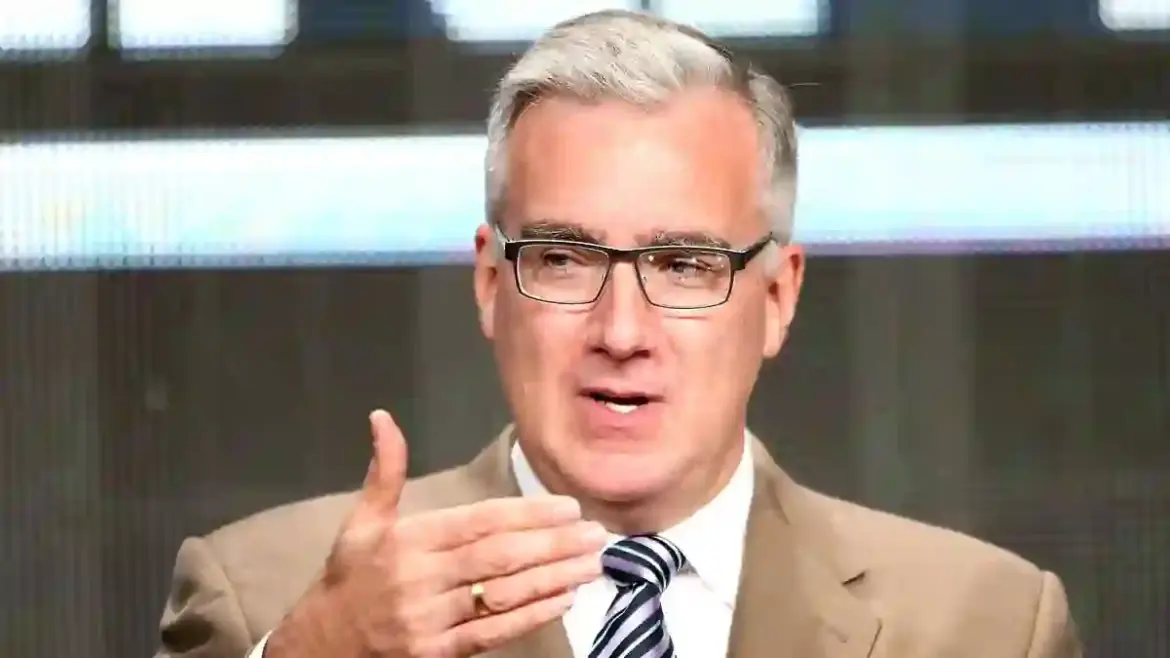The entertainment and political world is reeling after former ESPN anchor Keith Olbermann sparked a storm of outrage with his remarks about the late Charlie Kirk.
The controversy comes amid ABC’s sudden suspension of late-night host Jimmy Kimmel over comments he made regarding Kirk’s recent assassination in Utah.
Olbermann, known for his sharp tongue during his ESPN and MSNBC days, went on social media with a statement that many are calling “vile,” suggesting Kirk was burning in hell—a comment that immediately drew widespread condemnation.
Kimmel Pulled Off Air Amid Controversy
ABC announced Wednesday that Jimmy Kimmel Live! would be removed from the air “indefinitely.”
The decision followed Kimmel’s controversial monologue in which he criticized political groups for attempting to politicize Kirk’s tragic death.
ABC’s move left fans and critics alike debating whether the suspension was justified.
Several celebrities, particularly those leaning left, rushed to Kimmel’s defense, but Olbermann’s comments added fuel to the fire, escalating the conversation into a full-blown social media frenzy.
Olbermann Takes Aim at Sinclair, ABC, and Disney
Olbermann didn’t stop at Kirk. He also targeted broadcast group Sinclair, criticizing their claim that Kimmel’s suspension was “not enough” and calling for further action. “Burn in hell, Sinclair.
Alongside Charlie Kirk,” he tweeted, doubling down that nothing Kimmel said was untrue.
He later turned his ire toward ABC and parent company Disney, accusing them of “prostituting themselves for Trump” after Kimmel’s monologue on Kirk and the political fallout surrounding his death.
Social media users responded with fury, calling Olbermann “vile scum” and warning him about the dangers of “Late Stage Leftism.”
One user wrote, “Don’t become an angry, old, washed-up Leftist. THIS is what happens.”
Sinclair and Nexstar Take a Stand
Sinclair released a lengthy statement condemning Kimmel’s remarks and insisted the show would not return to their stations until formal discussions were held with ABC.
The network emphasized the need for professionalism and accountability in national broadcasts.
Meanwhile, ABC affiliate group Nexstar expressed strong objections to Kimmel’s comments, announcing plans to replace the show in its markets with other programming.
Kimmel’s Controversial Monologue
Kimmel’s remarks on Monday centered on the political fallout of Charlie Kirk’s assassination.
He criticized certain factions, claiming they were trying to exploit Kirk’s death for political gain.
However, Kimmel also inaccurately suggested the shooter, Tyler Robinson, had conservative affiliations—despite investigators confirming Robinson’s far-left leanings and a complex personal background.
Robinson, 22, is now in custody, facing multiple charges including aggravated murder.
Kimmel reportedly planned to address his comments on Wednesday night’s show, only to learn of his suspension beforehand, leaving him reportedly furious.
FCC Scrutiny and Political Fallout
Federal Communications Commission Chair Brendan Carr reacted swiftly, labeling Kimmel’s conduct as “some of the sickest conduct possible” and hinting at a potential FCC investigation into ABC and the host.
Carr also defended the decision of networks to hold late-night shows accountable, criticizing what he perceives as the enforcement of a narrow political ideology.
Carr, navigating internal agency divisions and seeking political alignment with former President Donald Trump, described the suspension as Kimmel “suffering the consequences” of his actions, framing it as an effort to ensure broadcasters serve public interests.
A Firestorm in the Media and Politics
The combination of Kimmel’s controversial monologue, Olbermann’s inflammatory comments, and the responses from broadcasters and the FCC has created a perfect storm in both media and political circles.
The events have ignited debates on free speech, accountability, and the boundaries of late-night comedy in a deeply polarized environment.
